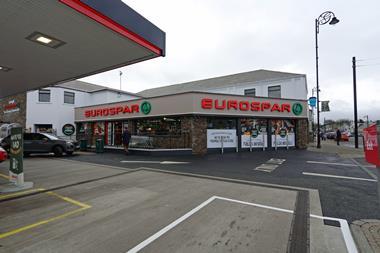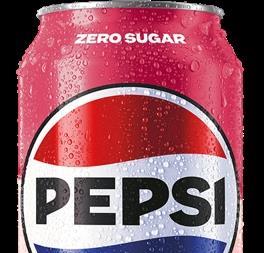
You can’t seem to go anywhere nowadays without seeing a supermarket delivery van or someone on a moped with a bag on the back, emblazoned with a food delivery logo. Whether it’s weekly groceries, some top-up items or a steaming hot pizza, food delivery is big business – and an in-store service that many forecourts now offer.
Will Robinson, managing director at Stone Willys, says the company has a few sites that use Deliveroo, Uber Eats and Just Eat for online orders. “One forecourt does over £3k a week in online Stone Willy’s sales. From our perspective it’s great because with one little oven we can essentially set up a ’dark kitchen’ and sell hot food throughout the day (and night) when a lot of the competition is shut. Whereas someone may spend £5 in store, the basket spend online is often three times that.”
Robinson adds that for forecourts with a lot of housing around them, delivery is a great extra revenue stream on grocery too. “We’re astonished at how many folks order pizza in the morning online along with general grocery items,” he says.

Scooting ahead
Roger Perry, director of Harog Ltd, which has two sites, says he is looking at offering home delivery shortly via the recently launched Booker Scoot platform. “This is something that I am quite excited about as I think we can give a good service to our customers and generate good margins for ourselves.”
Goran Raven from Raven’s Budgens in Abridge in Essex was the first to trial Scoot when it was launched earlier this year.
He says it’s going very well and has boosted basket spend: “You have to understand that we have come from zero with regards to deliveries and I am pleased with how it’s going so far. Our average basket spend is £35 and I’m very happy with that. It’s also not unusual to see orders of £100-plus come through. At the moment we’re getting the value rather than the volume.”
Raven says they are coping well staff-wise as they have a big team and always have dedicated delivery members on each shift.
The operation looks very professional thanks to deliveries going out in a bright yellow, Scoot-branded van. It cost Raven £15,000 but he was adamant that he wanted the operation to look professional and, given our temperamental weather, wanted to make sure that the drivers and what they were delivering stayed dry.
Profitability is key
Roger Perry says that with in-store services, they all drive footfall however the big question is do they drive sales and overall profitability. “Profitability is the key thing for me and not many do that. I stopped doing Paypoint over 10 years ago and Payzone around seven years ago. My experience of both was that it required a lot of staff time and paid negligible commission. Sometimes staff would make a genuine mistake, which was rarely reversible, and you would lose all your profit for the month or even longer. The majority of regular customers using Paypoint and Payzone were on very tight budgets so the argument that they generate additional sales never materialised in my experience.
“I think you have to be very careful about bringing on services as they usually pay very small commissions. In my experience they are seldom quick and easy for our teams to sort out and this then knocks onto the quality of service you are giving your other customers. The promised footfall does happen but that doesn’t always cross over into any significant uplift in shop sales.”

Lottery winner
However, Perry says the National Lottery is still a winner: “The Lottery does drive footfall, it is what customers expect in a good forecourt and gives a reasonable rate of return when taking into account space requirements and staff time. Sales are good throughout the year and we do see an uplift with a big draw, which is a bonus.”
Which services work for you definitely depends on your site location.
For Dan Perry, who is director of operations for Ron Perry with two sites on the busy A19, in-store services tend to be impulse purchases rather than planned trips.
The sites do very well with the National Lottery but more so with scratchcards than Lotto or Euromillions.
“Our lottery sales are impressive. We do sell tickets for the draws but more when there is some kind of mega draw backed by lots of marketing. Day-to-day scratchcard sales are higher.”
A large proportion of Dan Perry’s customers are truck drivers and he is hoping to attract more with 100 extra parking spaces for HGVs. His plans are in the hands of the local council at the moment but he is hopeful they will be approved this summer. Then he wants to launch a voucher scheme for the drivers.
“We converted a stockroom into a shower block for HGV drivers, who pay £2 for a shower token.
“We’re thinking of offering basic parking and then premium parking. For the premium price, drivers would get free showers, wi-fi and a hot dog. And we may add laundry into the mix too. We’ve also thought about adding a gym. Some sites have a pay-as-you-go gym and we will keep an eye on those to see how well they do.”

Parcel power
Roger Perry did look at his sites becoming parcel collection points, but once again commissions were low. “But the main issue for me was the space needed to store the parcels, which we did not have. Even if we did, I think we could make that space work harder by doing other things.”
Perry has now put parcel lockers into one site. “They are good as they utilise a space we would have otherwise struggled to do anything with and they bring in rental income. One of the main attractions for me was that they required no staff input. Our experience is that around 5% of the customers using the lockers come into the shop. It has also helped us attract new customers who have not visited the site before.”
A growing presence in the parcel locker space is InPost, which says it drives ‘real result’s for forecourt retailers. According to figures gleaned from 7,054 InPost Locker users at forecourt landlord-owned locations, 96% of InPost users visit a forecourt because the locker is there and over half (56%) say it made them more likely to return. Also, 58% bought something in the forecourt shop during their visit to the locker, with almost a third (28%) spending up to £49.

Extra facilities
Meanwhile, most decent forecourts offer toilet facilities nowadays and some even offer a Changing Places toilet for disabled people.
Changing Places toilets are larger facilities than typical toilets with extra equipment such as a height adjustable changing bench, hoist and privacy screens.
The Department for Transport recently funded 54 Changing Places toilets across the England motorway network. And elsewhere, one of the most recent forecourts to put in a Changing Places toilet is The Green Welly Stop in Tyndrum, which in 2016 won Forecourt Trader’s Best Forecourt Loo prize. Its new facilities include grab rails, ceiling track hoist and height adjustable sink and mirror. For extra accessibility, there is a disabled parking bay outside the door.
The Green Welly Stop is now listed on the Changes Places website alongside the other 2,607 facilities in the UK.
Finally, it seems the proliferation of services offered on forecourts is only set to grow as consumers demand more from locations. According to Lumina Intelligence’s Forecourt Operators Survey 2025, respondents expect home delivery for grocery, parcel collections and laundry services to be more important this year. And for shoppers, Lumina’s Forecourt Consumer Survey found that the top reasons for visiting a forecourt when they were not refuelling were: hot food and coffee (53%); toilets (53%); convenience store (50%); ATM (47%); air and water (41%); car wash (30%) and parcel collection (25% and up a whopping seven ppts since last year).





























